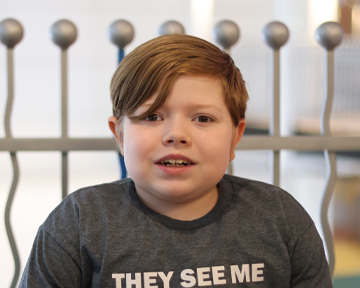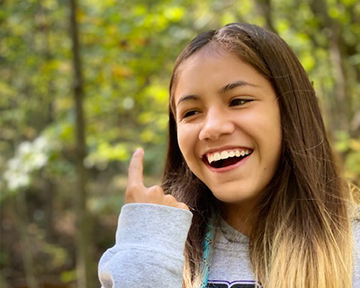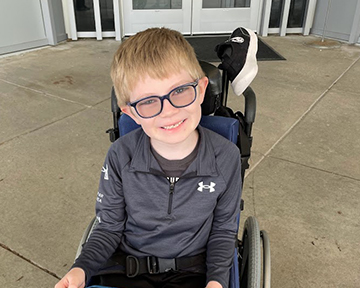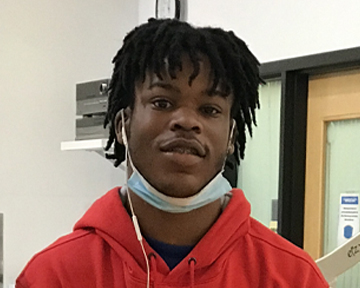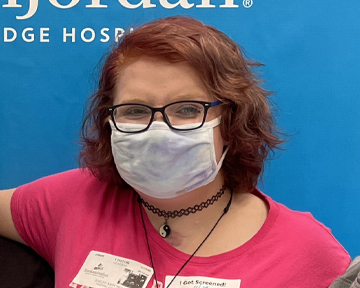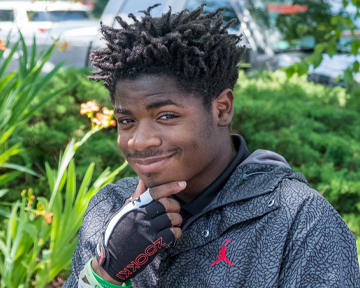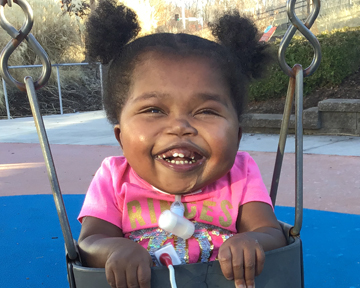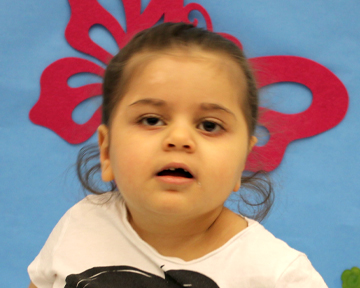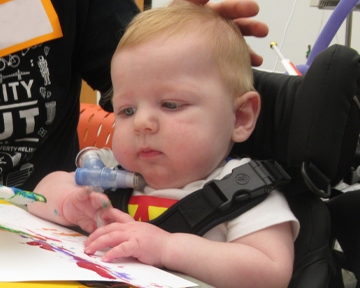Kiland
Beads & Milestones
Kiland's Story
Luckily Kiland’s tennis partner and friend pulled him out of the water. “If he wasn’t there, I probably wouldn’t be here today,” says Kiland. The ambulance came and rushed Kiland to the hospital. “I saw how much my mom was crying’, he recalls. “I knew it wasn’t good.”
Kiland spent the next two weeks in the ICU recovering and was transferred to Ranken Jordan to learn how to adapt to his new life as a quadriplegic, paralyzed from the chest down. He arrived at Ranken Jordan depressed and spent as much time as he could alone in his room. He stared at his computer, watching the lives of his friends and fellow tennis players. “Tennis was my life,” Kiland says. “I began playing when I was four-years-old. And here I was, unable to move my legs.”
One day, a volunteer at Ranken Jordan talked to Kiland about his tennis skills. Kiland reminded the volunteer he could hardly move his fingers. The volunteer put a racket in Kiland’s hand and duct tape around it. Kiland felt the grip in his hand and the rush of the game overcame him. He swung the racket over and over. “After that I was a totally different person,” says Kiland. “I started to think about everything that I could do rather than what I couldn’t do. I completely changed my mind set on life.”
Kiland’s entire demeanor changed. He noticed other patients, especially those in wheelchairs, would gravitate towards him at Ranken Jordan. “I think it was my never-give-up attitude,” says Kiland. “There were three guys in wheelchairs there, and they were down in the dumps. Just like I was. I sort of became their role model. They would see me out and socializing and being active, and they started to do the same. I told them there’s a lot of stuff you can do, you just have to try.”
Through intense therapy and self-discipline, Kiland returned to school where he was asked by his coach to play tennis again. At first, he wasn’t wild about the idea, but his mom encouraged him to consider it more. Then, he was approached by the Gerber Wheelchair Tennis Program at Dwight Davis Tennis Center. It seemed the universe wanted Kiland to continue his tennis career. Soon, he was playing again and began to play competitively.
Making an Impact
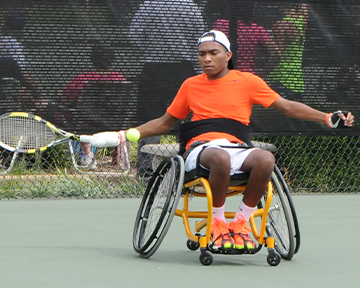
His recovery journey inspired Kiland to select a career in recreational therapy. Keen to always give back to the hospital, he worked as a summer intern with the Ranken Jordan recreational therapy department! His community service does not go unnoticed as Kiland became a recipient of the St. Louis American Charitable Foundation Salute to Young Leaders award! This award recognizes Black professionals under the age of 40 for their career achievements and community service.
More Patient Stories
“I still think about how Ranken Jordan changed my life.”
— Kiland Sampa, Inpatient Jul-Nov 2013, Outpatient Dec 2013-Dec 2014

